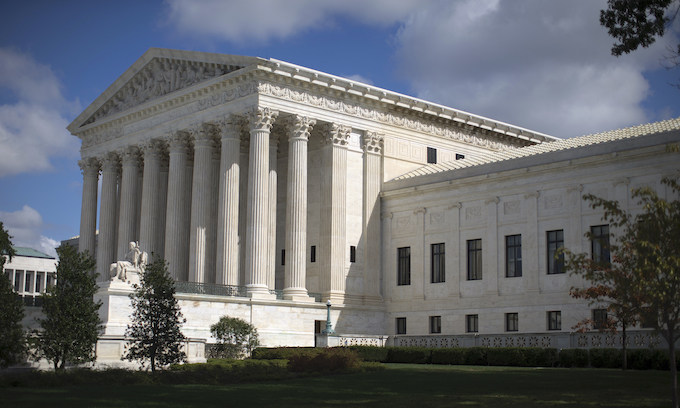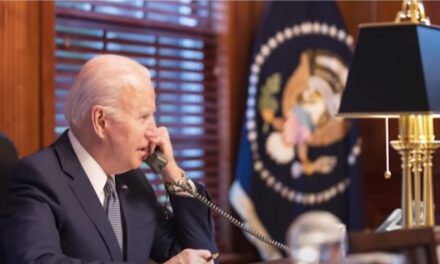The Supreme Court on Monday declined to hear a case seeking to reexamine the legal doctrine of “qualified immunity,” which shields police and government officials from some lawsuits.
The police-involved killing of George Floyd on Memorial Day has renewed demands on police reforms, including the “qualified immunity” doctrine.
The doctrine shields government officials performing discretionary functions from lawsuits unless a plaintiff shows that their conduct violated “clearly established statutory or constitutional rights of which a reasonable person would have known,” Supreme Court precedent shows.
Critics say the doctrine provides too much leverage to shield officials from accountability.
Petitioners had asked in particular for the court to reexamine the Alexander Baxter versus Brad Bracey case where the doctrine was used to shield police officers.
Nashville police officers Spencer Harris and Bracey had pursued Baxter, a homeless man, who had been trying to steal video games, laptops or computers from unlocked houses on Jan. 8, 2014, according to the petition from the American Civil Liberties Union. In the pursuit, Baxter was bitten by a police dog that was released on him as his hands were up in the air. Due to the attack from the dog, Baxter had to be brought to the hospital for treatment. Baxter sued the officers, claiming excessive force was used against him, but the 6th U.S. Circuit Court of Appeals granted qualified immunity to the officers.
Justice Clarence Thomas, a conservative and the lone black judge on the Supreme Court, wrote a dissenting opinion, showing a willingness to take up a petition to reexamine the case.
In his dissent, Thomas referred to the Civil Rights Act of 1871, which Congress passed in response to “the reign of terror imposed by the Klan upon black citizens and their white sympathizers in the southern states.” The Civil Rights Act of 1871, now codified in U.S.C. Section 1983, gave individuals a right to sue state officers violating constitutional rights.
“Because our [U.S.C. Section] 1983 qualified immunity doctrine appears to stray from the statutory text, I would grant this petition,” Thomas wrote.
Justice Sonia Sotomayor also previously urged the court to reexamine qualified immunity doctrine, saying that the court “displays an unflinching willingness” to allow lower courts to grant police officers qualified immunity and “rarely intervenes” when the lower courts go out of bounds on the issue.
Due to the “one-sided approach,” Sotomayor added that qualified immunity becomes “an absolute shield for law enforcement officers.”
The ACLU expressed disappointment in the court’s decision not to take up their petition.
“The Supreme Court’s deeply disappointing decision today to punt on the critical issue of official immunity, in this time of national reckoning over police violence, places the ball squarely in Congress’ court,” David Cole, the ACLU’s national legal director, said in a statement. “Justice Thomas’s dissent from the denial of review in the ACLU’s challenge to qualified immunity underscores how far off course the law has strayed. We have seen the deadly consequences play out on the streets, and black Americans have largely paid the price. Recent events demonstrate the urgent need for Congress to stand up for the rule of law and abolish qualified immunity – – for anyone acting under color of law – – to close the loophole allowing government officials to escape accountability for violating constitutional rights.”
Copyright 2020 United Press International, Inc. (UPI). Any reproduction, republication, redistribution and/or modification of any UPI content is expressly prohibited without UPI’s prior written consent.
—-
This content is published through a licensing agreement with Acquire Media using its NewsEdge technology.



















Recent Comments